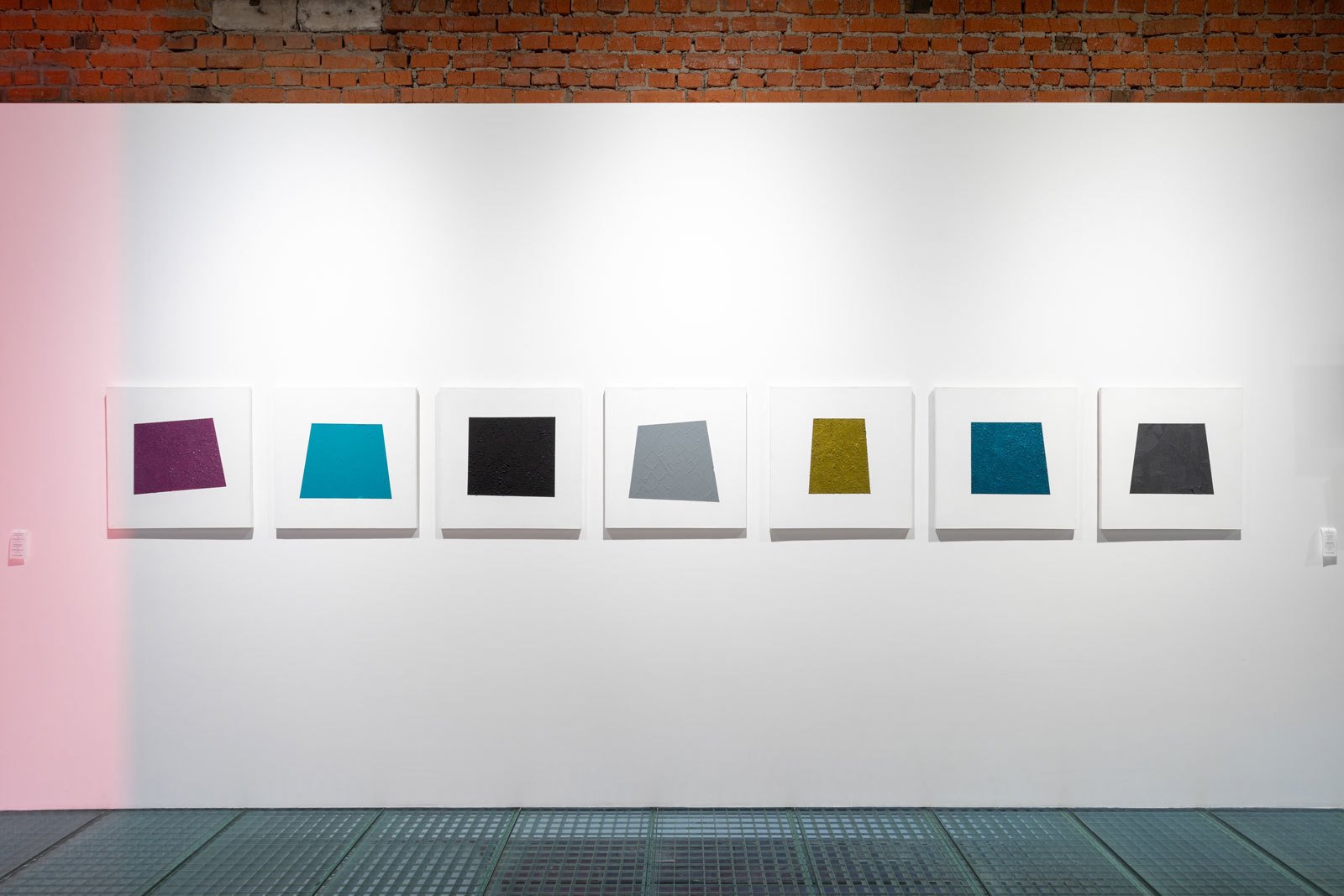Alexandra Galkina
(b. 1982, Moscow; lives and works in Moscow)

Skirts, 2011
Acrylic paste and acrylic on canvas, 7 parts, each 60 x 60 cm
Vladimir Smirnov and Konstantin Sorokin Foundation
The geometric forms evenly filled with one color, the white background, and the square format clearly point to the historical prototype of Alexandra Galkina’s series Skirts. It is, of course, Black Square by Kazimir Malevich, probably the most cited work in the history of twentieth-century art. Working with this recognizable icon of the avant-garde and modernism, Galkina radically alters the painting by contextualizing it within a world traditionally regarded as feminine: the world of fashionable outfits and an exclusively feminine piece of clothing. Playing with the idea that women must be interested in needlework is especially witty considering that Malevich himself—a male artist and one of the pillars of the modern mythology of genius—was fascinated by suprematist design. One might recall his sketches of ornament for fabrics (1919) or the suprematist dress projects (1923). Moreover, in his autobiography Malevich mentions that, as a child, he learned the arts of embroidering and lacemaking from his mother and that he enjoyed embroidering and crocheting. If, in this context, the combination of suprematist abstract painting with the world of cutting and sewing no longer seems paradoxical, one might consider the the signifying nature of the abstract image in Galkina’s work, which “reminds” us of the prototype of the real thing on which it is based. With her trapezoidal skirts, based on the organic nature of the human body, Galkina reveals a universal abstract form while ironically using the history of art as an instruction. Her Skirts are equally distant from the avant-garde project of refiguring the everyday and from the interest in handicrafts often assigned to women’s art. Being proportional to real mini skirts, these abstract forms play on the the human size of the artist and/or the viewer, translating modernist abstraction into “human” language.